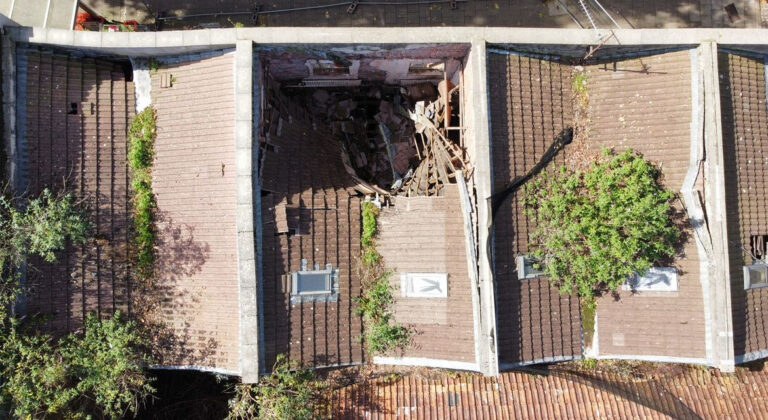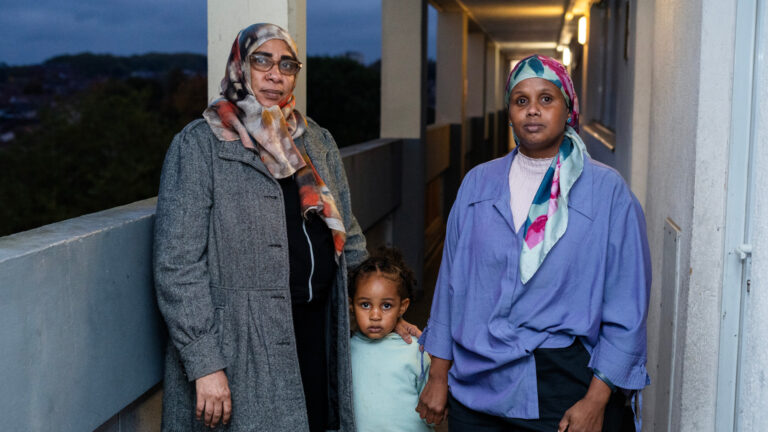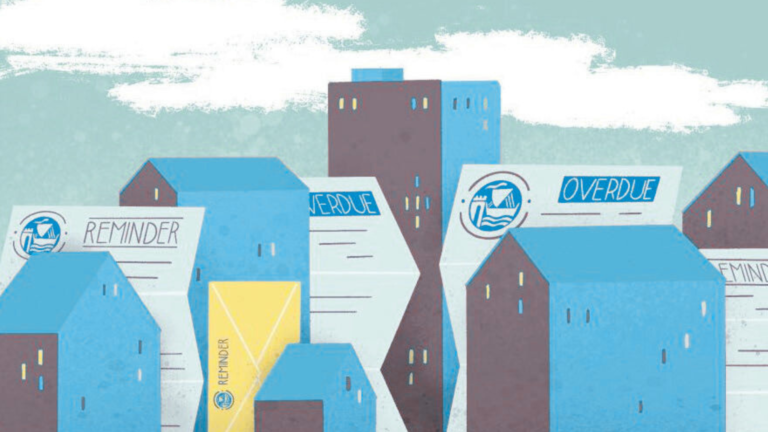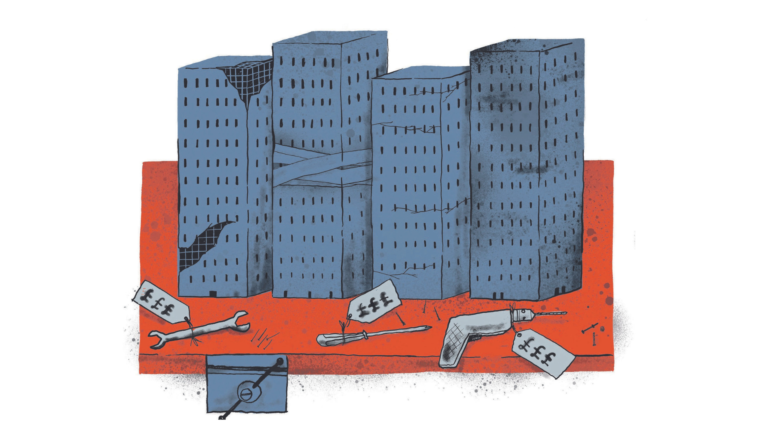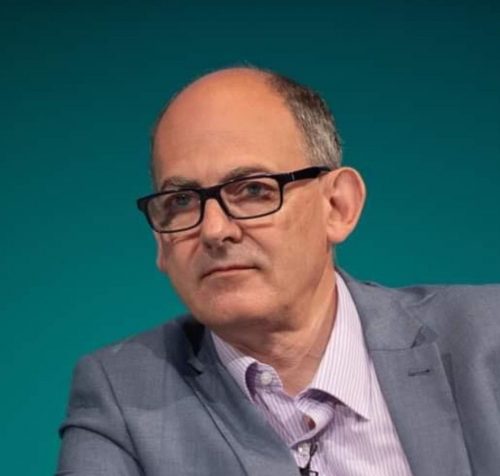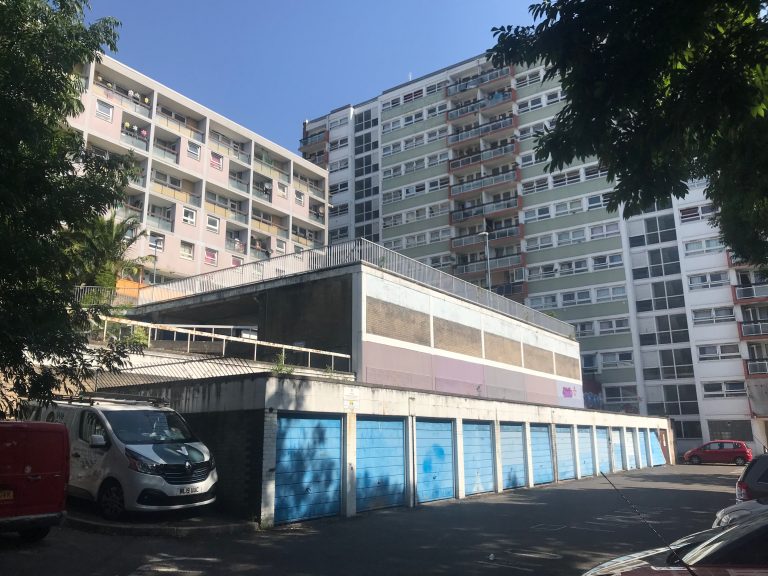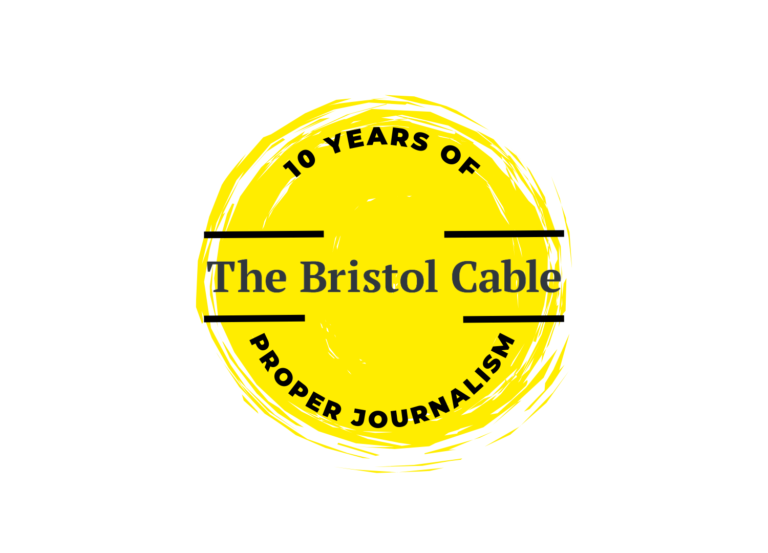From city of sanctuary to ‘city of opportunity’ – how Bristol can better integrate refugees
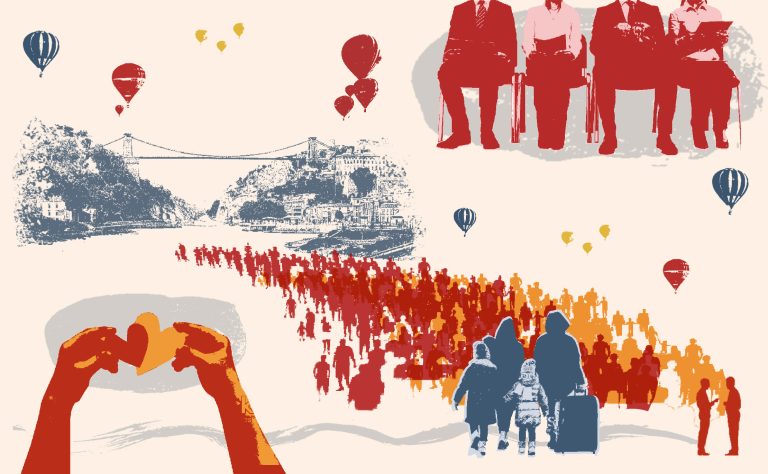
Illustration: Sophia Checkley
Fleeing the war in Ukraine, Daryna* never intended on claiming asylum in the UK. “I was broken, shocked and didn’t have a plan,” she says, “[other than] to save my child’s life.”
“On my second day in Poland I met a British woman,” she recalls. “Soon I began receiving message after message on Facebook, from British people offering me accommodation. This woman had posted on social media about [me] looking for a host family [under the Homes for Ukraine scheme]. I thought it was destiny.”
Darnya had a job with an IT company, but after six months in the UK her employers said they could no longer keep her on because of tax issues.
She then spent five months looking for work but struggled because no one recognised her experience. “My English literature master’s, my management degree, my experience as a university lecturer – they don’t mean anything [in the UK],” she says wistfully.
The only jobs she could find were washing dishes or stacking shelves. “I respect people who do those jobs,” she adds, “but I’m overqualified.” She eventually found two part-time jobs.
Daryna is one of 49 refugees in and around Bristol from 17 countries of origin who took part in a report published this summer by the Bristol-based refugee support organisation Ashley Community Housing (ACH) on integrating refugees into British society.
The report is part of a five-year ‘Change Makers’ collaboration between ACH and the Refugee, Asylum and Migration Policy (RAMP), which is funded by Comic Relief. It aims to move beyond the moral argument for providing sanctuary to asylum seekers and refugees, to make the social and economic case for integration.
Lead researcher George Smith calls Bristol’s Welcome Hubs, a partnership between the council and 15 city churches, a “great success story” that has been replicated elsewhere. “They were a place to meet, eat and signpost people to different services,” he says.
Meanwhile, 470 Bristol host families have opened their homes to 815 Ukrainian nationals since March 2022. Bristol City Council has offered support for 623 Afghan resettled refugees living in bridging hotels since September 2021, a spokesperson told the Cable.
But, Smith reflects, “we wanted to build on the work Bristol has done as a city of sanctuary – to think about how we become a city of opportunity”.
‘I’ve been silent for so long’
ACH’s study aims to amplify refugees’ and asylum seekers’ voices in the ears of policymakers, Smith explains.
It used three techniques.
“[First], I’d ask a participant to take me on a walk [during a ‘walking-based interview’] – it might be around their neighbourhood or in a local park,” he says. “It puts the participant in the driving seat. They decide where we walk, so the conversation steers naturally in the direction they take it.”
Smith was inspired by the anthropologist Tim Ingold, who said: “Life itself is as much a long walk as it is a long conversation, and the ways along which we walk are those along which we live.”

Smith believes there is “a lesson there about the way we think about migration, too – so walking interviews, or ‘thinking-in-movement’ seemed a fitting methodology”.
The study also used focus groups, including all-female groups and youth groups. But a third technique, a visual art workshop, was key, “especially for demographics for whom English isn’t their first language,” Smith says.
“We invited participants to make collages. We gave everyone the theme of hope – what does hope mean to you?” he continues. “It was very open, broad and the results were pieces of art on their own. We stitched them together and made what we call a ‘tapestry of resilience’, which formed the report’s front cover.”
Collage has been used in psychoanalysis to recover memory and associations, says Smith, who recorded participants talking about their piece of art. “One Ukrainian woman burst into tears and said, ‘I’ve been silent so long – this is the first time I’ve been able to express what’s happened to me and my hopes for the future.’ She said, ‘We need this for our children too’.’”
‘We’re desperate to contribute’
ACH’s report challenges us to imagine asylum seekers and refugees as ‘citizens-in-waiting’: people with rights, skills and potential.
“There’s a massive call in the sector for a trauma-informed approach to processing refugees,” Smith says. “[But] generalising can be quite patronising. The overwhelming response from the interviews was, ‘Yes, some of us have trauma, but we’re desperate to contribute.”
Instead of spending millions on hotels and food, hire people to assess cases – and let asylum seekers work, so instead of taking from the government, they will give it money
ACH’s report shows Bristol’s asylum seekers and refugees have huge untapped potential. They are architects, civil engineers, doctors, artists – even “a very talented glass blower”.
But instead of contributing, UK asylum seekers are marooned in a state of what the report calls ‘statutory unemployment’, often in hotels. Housing asylum seekers in hotels costs £2.3 billion a year in public money – and that’s only set to go up. In March, 47,518 people were housed in hotels; by June, this figure had risen to 50,546.
Amir* claimed asylum in the UK last year after being outed in his country of origin, where being gay is criminalised – and is now holed up in a Bristol hotel. “A lot of people roam around the lobby, not doing anything,” he says over the phone. “Whenever I leave to get food they are there. I don’t know how they will survive.
“Speed. They must speed up the process,” he says when asked how the UK asylum system needs to improve. “Instead of spending millions a day on hotels and food, hire more people to assess cases.”
Letting asylum seekers work would empower them to meet housing costs and pay tax, he says. “So instead of taking from the government, they will give it money.”
‘Our living conditions were tough’
Citizens-in-waiting may have huge economic potential, but ACH’s report emphasises that key interlocking factors – work, housing, education, and health and wellbeing – must be in place to enable them to really integrate.
“A secure home, a good job, and opportunities to progress affect people’s health and wellbeing,” the report states. “Equally, good health and wellbeing impact your ability to work and retain employment.”
Daryna’s story offers a case in point. For 13 months, she and her son have shared a bedroom with a host family, who “didn’t expect to host us for a year”. Those living conditions, and months of unemployment, caused her to spiral into depression. Her doctor referred her for therapy – which didn’t meet her needs.
“It was behaviour change therapy,” she explains. “If you’re sad, you do something that makes you happy. But our living conditions were tough – the therapist admitted this wasn’t for me because we couldn’t change [them].”
Integration must be holistic and services must operate collaboratively, not in silos, the report argues, examining the barriers and enablers to opportunity, and what levers are available to councils and other local organisations.
On housing, it makes several recommendations such as councils providing guarantees to landlords, as asylum seekers and refugees often struggle to find guarantors or references after living in hotels or with host families for long periods. Another involves repurposing empty buildings as temporary accommodation for people with refugee status.
ACH has begun piloting this approach in north Bristol with several partners, transforming a vacant building on a former school site awaiting planning permission into 15 apartments for refugees in need of interim housing.
To combat educational and employment barriers refugees face, the report recommends integrating linguistic and vocational education, making intensive English courses available, and educational institutions using accreditation of prior learning (APL).
‘An arsenal of exclusionary and punitive policies’
Far removed from the approach outlined in ACH’s report though, the government’s refugee policy seems to become more pernicious by the day.
The Nationality and Borders Act, passed in April 2022, introduced a two-tier hierarchy of people seeking sanctuary: those who arrived through resettlement schemes and those who claimed asylum after arriving in the UK.
“Its alleged aim was to discourage irregular routes like small boats,” Smith explains. “[But] those in the second tier are going to be limited by a temporary refugee status trapping them in a state of precarity for up to 10 years, with an open-door policy to deportation at any time.
This will prevent refugees committing to having any kind of meaningful life or contributing to society, he explains. “They can’t set up a business, start a family, get a secure job or secure a house. The act is basically a buffer to integration and social cohesion.”
Meanwhile the government’s other flagship migration legislation, the Illegal Migration Bill, passed in July 2023, aims to eradicate human trafficking, Smith says. “But it cloaks an arsenal of exclusionary and punitive policies targeting the most vulnerable migrants [for whom] there is no alternative safe passage. [It] denies people the right to seek asylum, to modern slavery protections or to ever return to the UK following deportation.”
He calls it an attack on civil liberties we should all be concerned about.
“That’s why we use the term ‘citizens-in-waiting’, it helps us understand that an attack on refugees is an attack on our own liberties.”
A Home Office spokesperson told the Cable the UK had “a strong track record of providing protection to those who genuinely need it” and that it was “committed to exploring new safe and legal routes”.
“However, the asylum accommodation system is under enormous pressure due to the huge increase in dangerous small boat crossings. The Illegal Migration Act will act as a deterrent to those entering the UK illegally, ensuring the only route to the UK is a safe and legal one.”
Councillor Helen Holland, Bristol’s cabinet member for adult social care and integrated care system said the council welcomed “the insight into the plight of displaced people and their lived experiences” provided by ACH’s report.
“We know having security and opportunities to progress improves people’s health and wellbeing, so as a local authority we work closely with our partners in health, housing, social care and community organisations to ensure those newly arrived in Bristol are supported,” Holland said. But the report’s recommendations “cannot all be delivered at the local level” or by individual local authorities.
“Clearly there is more we can do, UK-wide, to move towards creating equity of opportunity, and [there’s] a conversation to be had at the national level about how we can ensure people arriving here, seeking sanctuary, are provided with the right support to integrate successfully,” Holland said.
“We fully support the report’s recommendations for meaningful, two-way integration and look forward to exploring this further.”


